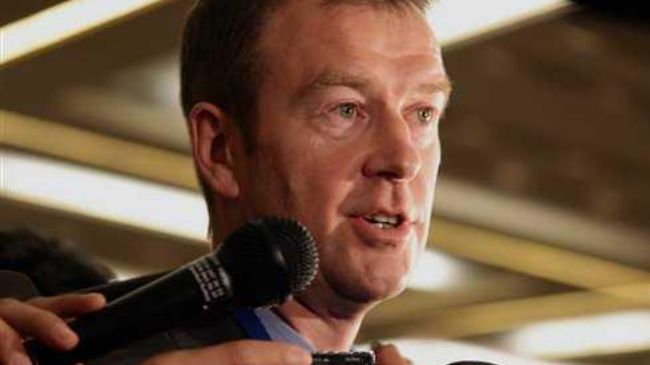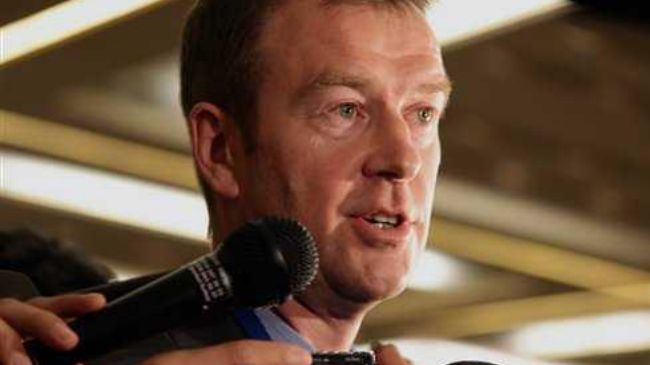 Michael Mann, spokesman for European Union foreign policy chief Catherine Ashton[/caption]
Michael Mann, spokesman for European Union foreign policy chief Catherine Ashton[/caption]The European Union (EU) has denied that there are any rifts between�the six powers�involved in the talks on Iran�s nuclear energy program.
The group of�six countries�"has been united and is still united", Michael Mann, spokesman for European Union foreign policy chief Catherine Ashton, said on Wednesday.
Mann�s remarks came after France's foreign minister said a day before that differences in the approach toward Iran's nuclear energy program�had emerged between Russia and Western countries over the past few days of the negotiations.
"Whereas until now the P5+1 (the United States, France, Britain, Russia, China and Germany) had a very homogeneous attitude, in the past days representatives in the negotiations have put forward a certain number of different approaches between part of the 5+1 and our Russian partners," Laurent Fabius said in an address to parliament's foreign affairs committee on Tuesday.
Mann further said every effort is being made for a permanent comprehensive nuclear deal.
"We are working very hard, we are working on drafting the text,"�he asserted, adding, "But there are still obvious, serious gaps to close and we are determined to work hard to try and close those gaps."
In the same vein, German Foreign Ministry spokesman Martin Schaefer rejected the remarks by Fabius, saying all the members of the P5+1 are looking for a final solution to the nuclear standoff and there is a "complete understanding" among the six countries in this regard.
"The main criterion for all of us is that the Iranian nuclear issue be resolved in such a manner that would be acceptable for everyone," Schaefer said.
Iran and the six countries formally kicked off the sixth round of nuclear talks on July 3 to discuss a permanent accord on Tehran�s nuclear energy program.
The two sides have been discussing ways to thrash out their differences and achieve a final deal that would end the decade-old dispute over Iran�s nuclear energy program.
Iran and the six countries sealed an interim deal in Geneva, Switzerland, on November 23, 2013. The deal came into force in January and expires on July 20, but can be extended depending on an agreement by all parties involved.
By Press TV
The Iran Project is not responsible for the content of quoted articles.











